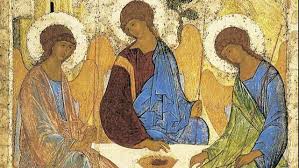 Ecclesiology focuses theologically on the history and polity of the church, therefore modules are taught in Church History and Church Polity. In Church History attention is given to church and theological history from the time of the early Christians/church until our present age. The South African context and the Reformed tradition receive special attention within an ecumenical framework. In Church Polity the focus is on the way in which our theological thinking about the church (our ecclesiology) can take on form in the order within and for the church.
Ecclesiology focuses theologically on the history and polity of the church, therefore modules are taught in Church History and Church Polity. In Church History attention is given to church and theological history from the time of the early Christians/church until our present age. The South African context and the Reformed tradition receive special attention within an ecumenical framework. In Church Polity the focus is on the way in which our theological thinking about the church (our ecclesiology) can take on form in the order within and for the church.
Systematic Theology studies Christian Faith as well as Christian Ethics. In Christian Faith the content of the Christian tradition - often summarised in confessions and doctrines concerning God (including God's revelation and knowledge of God, God's creation, God's providential care, God's image, humankind), Jesus Christ (including his person, life and work of salvation) and the Holy Spirit (including the life-giving work of the Spirit, the church, the sacraments, the ends of creation) - is studied in the light of contemporary questions, claims and experiences.
In Ethics the foundation of Christian morality is researched. It is often summarised in questions about what morality is and how it can be founded, what constitutes a moral society, how moral people behave, what moral actions are in view of specific ethical questions, and whether Christians should adhere to a particular form of morality.

